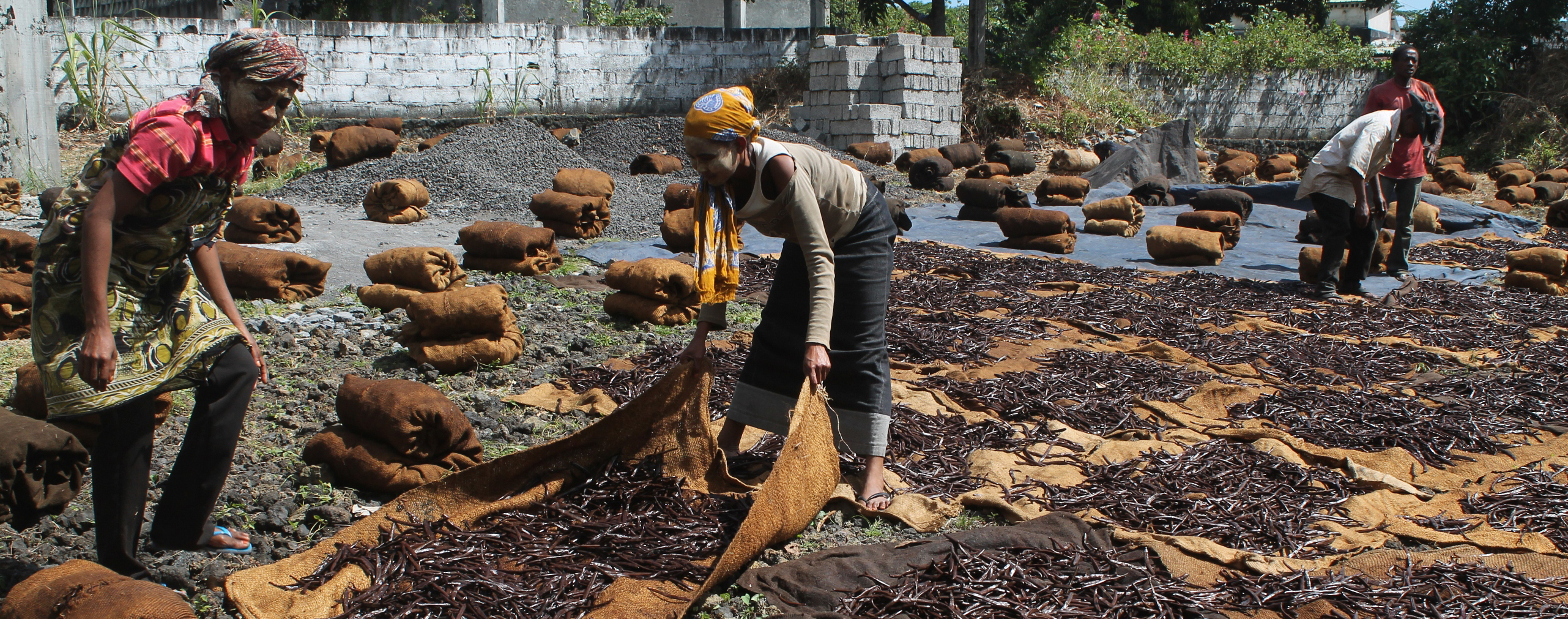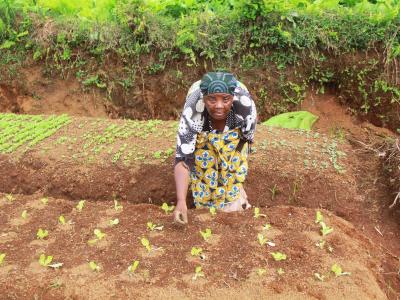
Agriculture is the mainstay of the economy, contributing over 90% towards Comoros’s exports earnings. Despite the crucial role of agriculture in the economy and for employment, the domestic agricultural sector is struggling to provide the food needs of the population. The project's objective therefore, is to strengthen the capacities of vulnerable communities to cope with the additional risks posed by climate change as well as the variability on agro-sylvo-pastoral systems through training and dissemination of information. Cover Image: Maesha ya lavani, the first cooperative on the islands focused on vanilla. A dozen of its members are women. Photo: UNDP Comoros
- Community
- National Governments
- Comoros’s Ministry of Fishing, Environment, Livestock, Industry and Agriculture (MPEEIA)
- United Nations Development Programme (UNDP)
- Global Environment Facility (GEF)
Un vent de Résilience aux "Iles aux parfums"
Resilience in the ‘Perfume Islands’
Securing vanilla for farmers and development in Comoros
Nasmata Ahamada Djaé got involved in vanilla production two years ago, although she still works full time at a hospital. “My parents never worked in agriculture, and the cooperative has been very supportive,” said Nasmata. “Vanilla is now key to our economy and this is important for my children’s education.” Nasmata works in the vanilla field only during the weekends. She is among the 54 members of Maesha ya lavani, the first cooperative on the islands focused on vanilla. A dozen of its members are women. Abdillah Mohamed Saïd is one of the founding members of the cooperative, and has been making a living from vanilla since he was a teenager. “It was my father who guided me into working with vanilla. I have no regrets, since vanilla has given me salaries way higher than those of civil servants,” says Said. “Our plots are packed with vanilla; other crops are a minority. I personally grow vanilla, I must have around 10,000 vanilla vines in three quarters of my plot. The other 25 percent has mangos, oranges, coconut, lemons, etc.”
Videos
The project is expected to achieve the following –
- Strengthening the adaptive capacity of the agriculture-sector institutions through the design and implementation of training programmes for management of climate risks for Agro-sylvo-pastoral systems (Outcome 1.1) and; Revision and integration of climate risks into national, regional and local development plans (Outcome 1.2)
- Production and dissemination of agro-meteorological information for informed decision-making in the agricultural sector including identification and monitoring of severe weather warnings, and climatic information needs for climate resilient agricultural in the 30 most vulnerable communities (Outcome 2.1); Development of training programmes for the staffs of agriculture, meteorology and disaster management divisions (Outcome 2.2) and; Design of a decision-support system which combines information on agricultural and climatic conditions (Outcome 2.3)
- Diffusion of climate resilient agro-sylvo-pastoral technologies in the most vulnerable communities including climate-resilient food crop, and fruit farming and livestock breeding technologies (Outcome 3.1); Low cost community infrastructures to fight against climate induced erosion (Outcome 3.2); Creation of a climate resilient agriculture advisory support group (Outcome 3.3); Creation of a sustainable climate-resilient agricultural inputs delivery system between inputs supply companies and strengthened rural retailers (Outcome 3.4); Public private partnership enabling private and public sector contribution towards integrating climate risks and adaptation options (Outcome 3.5) and; Creation of innovative financial products to finance farmers to make climate change adaptation investments (Outcome 3.6)
- UNDPHenry DioufRegional Technical Advisor


